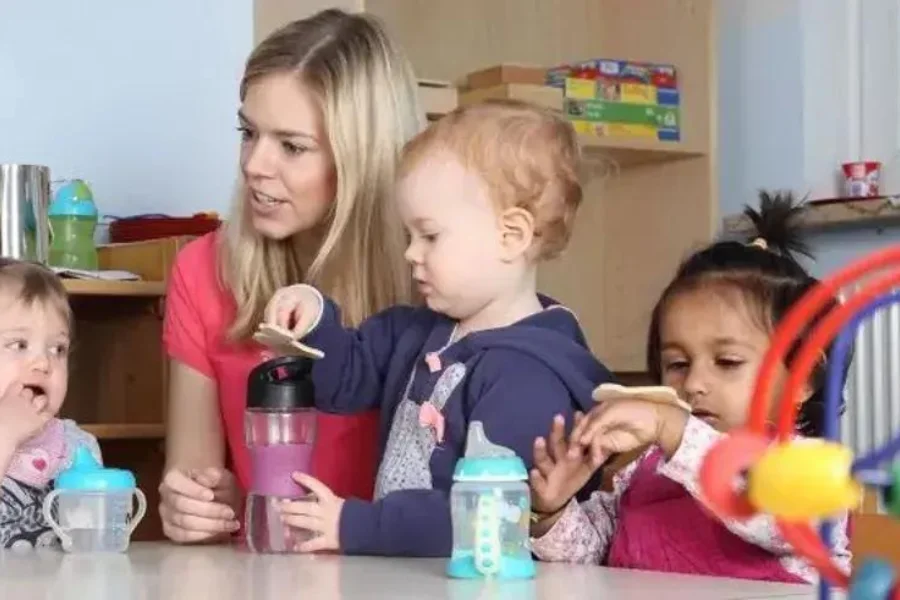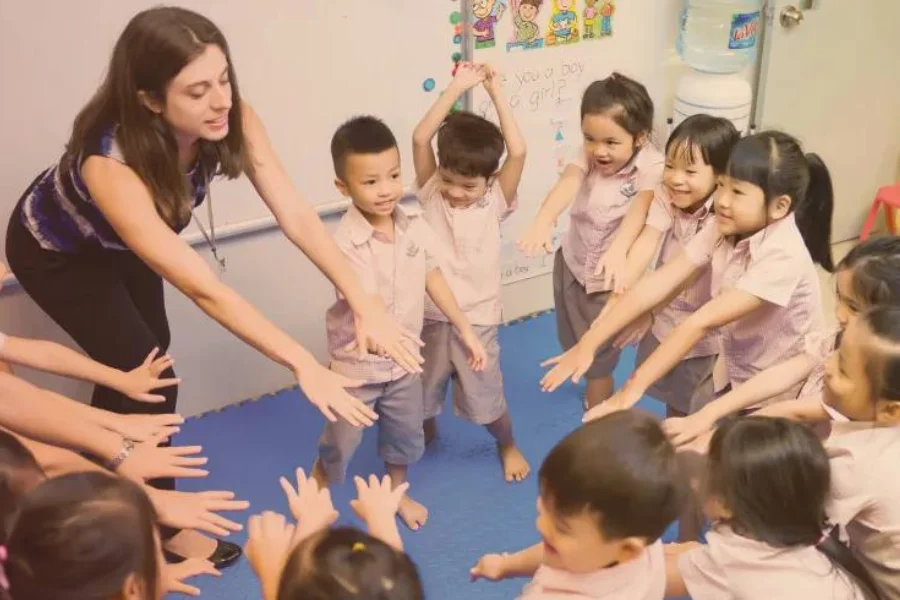
Source: gadgets
Preschoolers are full of vibrancy, and inquisitiveness with great emotions, and are fascinated by the world around them. But sometimes there may be Behavior Issues in Preschoolers as they try to understand the world and are still learning to express themselves. This behavior can be challenging for parents and teachers.
But these Behavior Issues like temper, defiance, aggressiveness, trouble adapting to rules, etc., are usually a natural part of their early development years. Comprehending the causes behind these Behavior Issues in Preschoolers can allow teachers and parents to respond with patience and help children not let those issues carry over to adulthood.
For more Details of PPTTC Course Call / Whatsapp on +919869546913 / +919869866277
To Download Brochure of PPTTC Course, Click Here!
Common Causes of Behaviour Issues in Preschoolers?
Preschoolers are still learning to understand, express, and handle their sentiments, but they can sometimes get distracted leading to Behavior Issues. Many elements, also working in combination, can contribute to these problems.
Knowing these Common Causes of Behaviour Issues in Preschoolers can help caregivers respond with patience and adequate help:
Basic Needs and Routine
Tiredness
It becomes more difficult for preschoolers to handle their emotions when tired, causing frequent meltdowns.
Hunger
Hunger can result in low energy levels which leads to difficulty in obeying instructions and crankiness.
Erratic Practices
A lack of routine can make children feel skeptical of what to expect, causing irritation and acting out.
Emotional and Developmental Challenges
Hardship Handling Emotions
Preschoolers are still learning how to manage emotions like joyfulness, letdown, discontentment, etc., which can lead to blowups or defiance.
Disappointment Due to Developmental Delays
Struggles with speech, motor skills, or interpreting instructions may lead to letdown.
Environmental Aspects
Shifts in Routine
Shifting to a new location, beginning preschool, or adapting to a new caretaker can be nerve-wracking for young children, leading to behavior problems.
Family Dynamics
Domestic violence, family disputes, substance abuse, major life shifts, poor parenting skills, etc., can affect a child’s emotional well-being and conduct.
Underlying States
Anxiety
Anxiety can cause clinginess, pullout, or hardship in adjusting to new circumstances.
Early Intervention by identifying the core reasons for Preschoolers Behavior Issues can give better outcomes in handling children’s emotions and formulating more beneficial coping skills. Multifaceted treatment by consulting a pediatrician or Child Development specialist can provide further advice if concerns persist.

Source: gamudagardens
Types of Behavior Issues in Preschoolers?
Since preschoolers are still developing their emotional and social skills, occasional misbehavior is a typical part of growth. However, persistent, intense, or challenging conduct may need further attention.
Some common Types of Behaviour Issues in Preschooler are:
- Tantrums and Emotional Outbreaks
- Aggression
- Frequent Lying
- Defiance and Oppositional Behavior
- Attention and Control Issues
- Low self-esteem
- Anxiety and Pullout
- Hardships in Sharing and Taking Turns
- Impulsive or Hyperactive Behavior
- Sensory-Related Behaviors
Guardians can provide appropriate help and support emotional regulation and social advancement by understanding the causes behind these Preschoolers Behavior Issues.
How to Handle Preschool Behaviour Issues?
A cheerful and constructive strategy is the best way to address Behavior Issues in Preschoolers. They will need guidance to understand, remember, and practice positive behavior. Use simple language and reinforce rules with soft reminders to Handle Preschool Behaviour Issues. A predictable routine helps children feel secure, lowering frustration. Regular meal times, rests, and sleep prevents fatigue-induced breakdowns.
Promoting optimistic behavior through recognition and rewards reinforces good practices. Be precise with recognition, such as “Great job sharing!” Teaching emotional regulation allows children to come through frustration. Encourage deep breathing, counting, or using a calm-down junction. Model the right responses to emotions so they can understand by example.
When establishing boundaries, use gentle discipline techniques like redirection and time-outs. Avoid severe punishments, which can escalate the circumstances. Identifying stimuli, such as hunger, exhaustion, illness, etc., can help address underlying causes of Behavior Issues. Teaching social skills like caring, sharing, turn-taking, helping, etc., are equally essential.
Consult a pediatrician or specialist for advice if challenges prevail. Early intervention may be advantageous for states like ADHD or Autism. One can excellently Handle Preschool Behaviour Issues with tolerance, consistency, and exemplary approaches and help preschoolers develop emotional control and optimistic social behaviors over time.
Examples of Handling Behavioral Problems of Preschooler?
Teachers and parents play an integral role in guiding young children toward optimistic behavior. Vidhyanidhi Education Society (Govt. Regd.), an esteemed institute, offers a Preschool Teacher Course that trains educators with techniques to Handle Behavior Issues in Preschoolers.
Examples of Handling Behavioral Problems of Preschoolers:
- Tantrums
- Aggression (Hitting, Biting, or Kicking)
- Defiance
- Attention-Seeking Conduct
- Difficulty Sharing
- Separation Nervousness
A Preschool Teacher Course provides educators with insights into child psychology, classroom control techniques, and skills to handle Behavior Issues in Preschoolers. Joining a Preschool Teacher Course can help educators foster a nurturing setting where children feel protected, ensuring a favorable learning experience for every child!
Shape young Minds with Ease! Join the PPTTC Course at Vidhyanidhi Education Society!
For more Details of PPTTC Course Call / Whatsapp on +919869546913 / +919869866277
To Download Brochure of PPTTC Course, Click Here!
Preschool Teacher Course
FAQs
What Age do Behavior Problems Start?
Behavior problems can begin as early as 18 months, becoming more evident between ages 2-4 as children develop independence and question boundaries.
Where do Children Learn Behavior?
Children learn behavior by watching parents, teachers, and equivalents. They imitate actions, absorb social cues, and respond to reinforcement from their surroundings.
How do You Study Child Behavior?
Child behavior is studied through observation, developmental assessments, and behavior analysis. Vidhyanidhi Education Society offers courses on child psychology.



